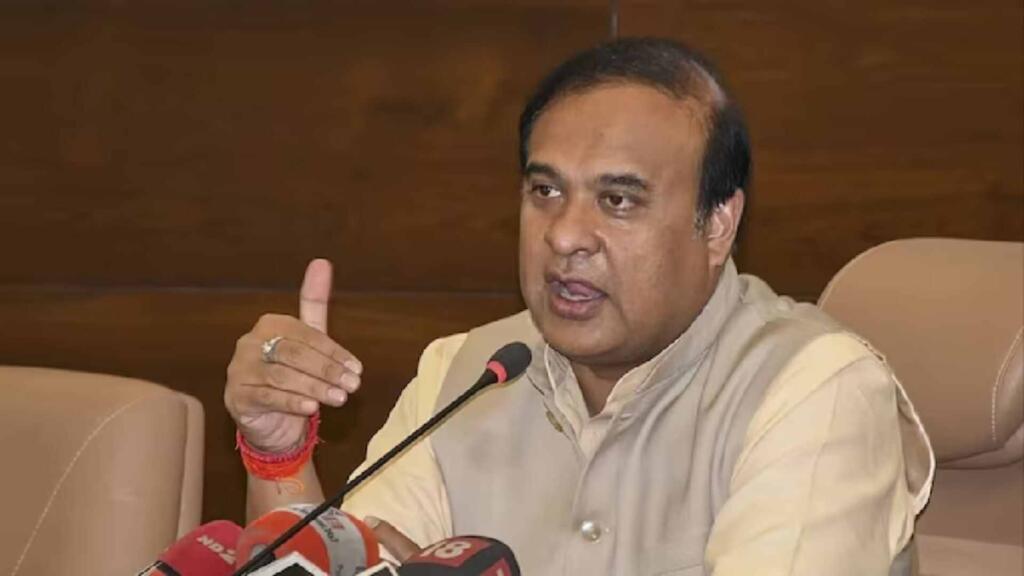Assam’s Chief Minister, Himanta Biswa Sarma, has asserted that the Bangladesh-origin minority community overwhelmingly supported the Congress party in the recent Lok Sabha elections. Addressing a gathering at the Bharatiya Janata Party (BJP) state headquarters in Guwahati, Sarma expressed concerns over the voting behavior of this community, suggesting they engaged in communalism.
Analysis of Election Results
During the felicitation program for BJP and its allies’ victorious candidates, Sarma shared an analysis of the voting data. He revealed that the ruling alliance secured nearly 47% of the votes, while the Congress and its partners garnered 39%. However, he pointed out that this 39% was not evenly distributed across Assam. Instead, half of these votes were concentrated in 21 assembly segments dominated by the minority community, where the BJP received a mere 3% of the votes.
Sarma’s Remarks on Communalism
Sarma emphasized that this voting pattern indicates that communalism is primarily prevalent within the Bangladesh-origin minority community in Assam. He argued that no other community or religion indulges in such behavior. Sarma further claimed that despite significant development efforts by the BJP-led government, including the provision of roads, electricity, and other amenities, the minority-dominated areas continued to vote for Congress.
Sarma’s remarks bring to light the complex role of communalism in Assam’s politics. By attributing communalism to the Bangladesh-origin minority community, Sarma has sparked a debate on the interplay between religion, community identity, and political allegiance.
Development vs. Voting Patterns
The Chief Minister highlighted a seeming contradiction: minority communities benefiting from BJP’s developmental schemes still predominantly voted for Congress. He cited the example of Karimganj and other areas with a significant Bangladesh-origin population, where 99% of the votes went to Congress. Sarma argued that this voting behavior was not reflective of the development efforts made by the BJP government at both state and central levels.
Future Control Concerns
Sarma also suggested that the Bangladesh-origin minority community’s voting pattern is strategically aimed at gaining control of Assam in the next decade. He claimed that this community’s allegiance to Congress is part of a broader plan to influence the state’s political landscape over the coming years. According to Sarma, this strategy is not just about immediate electoral gains but about establishing long-term dominance in Assam.
By consistently voting for Congress, the Bangladesh-origin minority community may be positioning themselves to exert more substantial political influence. This approach, Sarma implied, could lead to significant shifts in Assam’s governance and policy-making, potentially marginalizing other communities in the process.
Historical Context and Incidents
Sarma mentioned past incidents to support his claims, including attacks on a police station in Lakhimpur and attempts to encroach on land in Kokrajhar by members of the Bangladesh-origin community. He noted that these incidents occurred when the BJP government was inactive due to the enforcement of the Model Code of Conduct (MCC).
Minority Communities and Development Initiatives
Sarma expressed frustration that the developmental initiatives by the BJP-led government did not translate into electoral support from the Bangladesh-origin minority community. He pointed out that despite improvements in infrastructure, such as roads and electricity, these areas continued to show overwhelming support for Congress. This trend, according to Sarma, reflects a deep-rooted communal bias rather than a rational assessment of development progress.
Conclusion
In summary, Assam Chief Minister Himanta Biswa Sarma has voiced strong opinions on the voting behavior of the Bangladesh-origin minority community in the state. He contends that this community’s support for Congress, despite benefiting from BJP’s development schemes, highlights a tendency towards communalism and a strategic plan to control Assam’s political future. These claims underscore the complex interplay of politics, community dynamics, and development in the region.
Sarma’s comments reflect broader concerns about the influence of communal identities on electoral outcomes and the challenges of fostering inclusive development in a diverse state like Assam. As the political landscape continues to evolve, the role of different communities and their voting patterns will remain a crucial factor in shaping Assam’s future.
ALSO READ: Why is Amit Shah not taking tough steps against Mamata Banerjee?
